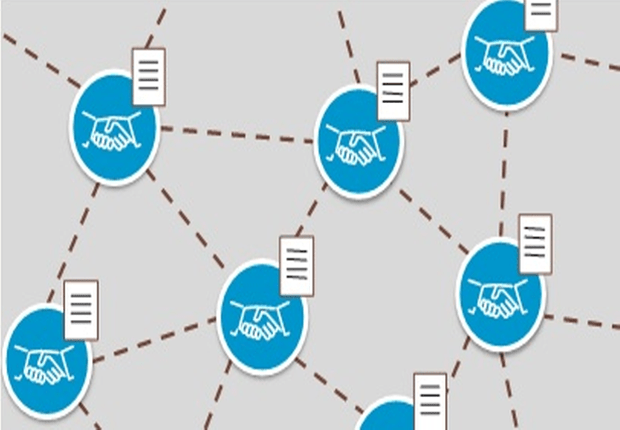Payments Leader
Blockchain: Mystery or Reality for the Financial Industry? – by Esther Pigg
May 29, 2018
Esther Pigg | Senior Vice President, Product Strategy FIS Payments Division
Blockchain is a complicated mystery to many, but it doesn’t have to be. Here’s a simple description I find helpful:
Imagine a spreadsheet (ledger) that is duplicated (distributed) thousands of times across a network of computers (nodes). This spreadsheet is constantly reconciled (by miners) and updated instantly with new transactions (blocks). The spreadsheets are permanent, public and verifiable (proof of work).

Blockchain has captured our attention for many reasons beyond the cryptocurrency hype. Here’s why:
- Transactions are verified and approved by consensus among participants in the network, making fraud more difficult.
- The full chronology of transactions that take place are tracked, allowing anyone to trace or audit prior transactions.
- The technology operates on a distributed rather than centralized platform, with each participant having access to exactly the same records, providing more resilience against hacks.
Secure by design makes blockchain potentially suitable for recording events, contracts, medical records and other records management activities like identity verification, transaction processing or even voting. More broadly, blockchain technology can be applied to any multi-step transaction where traceability and visibility are required.
Trending in Fintech
For now, real-life use of blockchain technology is still limited, but financial institutions and fintechs are already experimenting with the new technology. American Express, JPMorgan Chase, Santander, Bank of India, CU Ledger, FIS, Ripple, and others are exploring blockchain use cases for banking and payments. Proofs of concept, innovation lab experiments and controlled pilots are underway with selective back office and customer-facing solutions. These initial trials and patent filings may develop into real and material opportunities for additional revenue and cost reduction, particularly for cross-border payments, securities trading and compliance.
Emerging Realities
Today, the financial industry is primarily starting with private collaborative blockchain networks to make sure that customer information remains private and safe from hackers that could disrupt the ecosystem. With the tremendous pressure to demonstrate regulatory compliance, secure solutions like blockchain can become a crucial component to reduce compliance costs.
Blockchain’s “distributed” technology can be useful in back-office tasks such as transaction and contract reconciliation to enable faster updating and more accurate recordkeeping. Blockchain can cut the cost of daily checking and re-checking of ownership and transactions.
Notable pilots are focused on reducing the cost and complexity of cross-border payments that are traditionally full of friction and manual processes. Blockchain technology can reduce the transfer time from days to hours, practically eliminate fraud and default by providing verified visibility of smart contracts.
Shaping the Future
Yes, there are still many questions to be answered about blockchain uses and governance. However, waiting for blockchain perfection could mean missing an opportunity to help shape it.![]() To understand how blockchain can enable the financial industry to become more efficient, resilient and reliable requires both continued research and real-life applications and pilots. Together, we are learning the real advantages of this new technology – and the future opportunities are constantly unfolding.
To understand how blockchain can enable the financial industry to become more efficient, resilient and reliable requires both continued research and real-life applications and pilots. Together, we are learning the real advantages of this new technology – and the future opportunities are constantly unfolding.